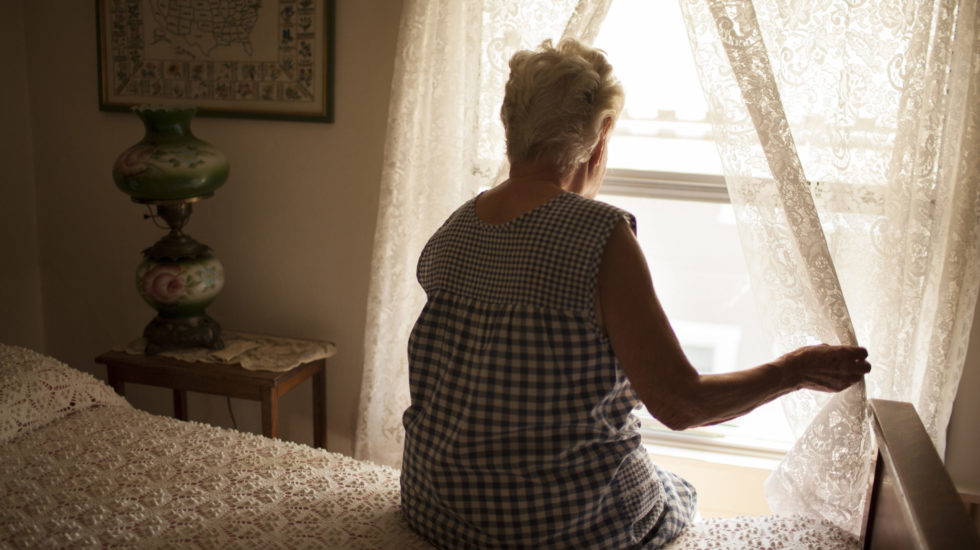The coronavirus crisis has been tough on all of us, but it is taking the greatest toll on the elderly. The group that is most vulnerable to the deadly virus, is also the one suffering from the most stress. Becci Bookner runs an in-home personal care firm for the elderly in the middle Tennessee area. She tells us:
Our seniors, considered the most vulnerable to this illness, are the ones paying the biggest price. Most of us have many days and years to look forward to, but that is not the way our seniors see their future. Now, the mental and physical wherewithal to sustain themselves and their active, healthy lifestyles have been challenged and changed overnight.
Lori Karny, the clinical supervisor for the older adult program at The Maple Counseling Center in Los Angeles tells News & Guts:
Some older clients are struggling with hopelessness, suicidal thoughts and daily distress related to coping with challenges of living with uncertainty and a frightening future. Some are ambivalent about dying, other older adults are more distraught about living alone.
Dr. Bruce L. Thiessen, a licensed clinical psychologist has been working with the elderly community at a community health center in San Diego, California. The songwriting psychologist, who also goes by the name Dr. BLT wrote a song to address the fears elderly patients are facing. He says Quarantined Queen reveals the plight of many of our elderly, and the fear of losing an elderly spouse to the virus. He adds:
Fear of death; fear of being the victim of nearly unbearable co-vid 19 symptoms; fear of losing a spouse to the virus and not being there for that spouse in their dying moments; and sense of loneliness, isolation and touch-deprivation that corresponds to the illness – these are all very real experiences of our elderly as they face this bitter battle.
Dr. Lindsay Israel, a Psychiatrist at Success TMS in South Florida shares how this has not just impacted her patients, but her family as well:
My husband is blessed enough to still have his 101-year-old grandfather and great-grandfather to my 2 sons. He lives in an independent living facility, separate from his wife who is in a memory unit for worsening Alzheimer’s dementia. The staff is limiting all contact with residents, and are leaving three meals a day outside each apartment. He is all alone. All we can do is call him daily, let him hear the voices of his great-grandsons. All we can do is make sure he is safe and alive. This is not a sustainable way for him, or anyone, to live. As a psychiatrist and a granddaughter-in-law, I am extremely concerned about the toll that the aftermath of this coronavirus shutdown will take on my patients and the people I love.
Dr. Karen Thames, a psychologist in Des Plaines, Illinois says she is dealing with something similar with her father:
I am immunocompromised and have been very sick during this pandemic. To protect my father, I have not seen him in over 8 weeks. My dad, Henry, will be 85 years old this July so he also belongs to a vulnerable category. My sister is healthier than me and was dropping things off to him about once a week so he could see a friendly face. However, now his management company has mandated that their residents have no visitors at all. As a person who is already so isolated, I worry about his impact this will have on my dad.
But Dr. Karen says this is why we need to make an extra effort to stay in touch with the older people in our lives:
I make the distinction between social or physical distancing and isolating. We must physically distance for safety reasons. However, I encourage people not to isolate. How? Stay connected through social media but set healthy boundaries. Talk on the phone and use platforms like Zoom, Facetime, and Skype. That being said, this is extremely difficult for the elderly. My dad can barely remember how to use the phone let alone use any of these other methods to connect.
As Dr. BLT says, “This pandemic will be, in large part, reflected upon according to how we treated the elderly—our most vulnerable citizens.”



